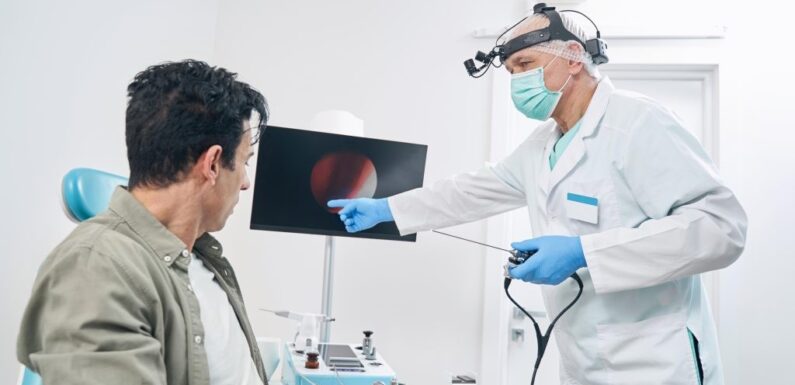
Colonoscopy screening is an essential tool for detecting potential health issues, particularly colorectal cancer. Despite its importance, many individuals experience fear and anxiety at the thought of undergoing this procedure.
Understanding the reasons behind these feelings and learning effective coping strategies can significantly alleviate anxiety and encourage timely screenings, which can be life-saving.
Understanding the Fear of Colonoscopy Screening
The fear of colonoscopy screening often stems from a combination of factors. For many, the mere thought of undergoing a procedure that involves entering the body can evoke discomfort. Concerns about pain, embarrassment, and potential findings can also exacerbate anxiety.
The fear of the unknown is another significant contributor. Individuals may have misconceptions about what the procedure entails, leading to heightened anxiety. For instance, they might worry about the bowel preparation process, the sedation, or the possibility of receiving a serious diagnosis.
Recognizing these fears is the first step towards overcoming them. By addressing specific concerns, individuals can take proactive measures to alleviate their anxiety about colonoscopy screening.
Educating Yourself About the Procedure
One of the most effective ways to combat fear is through education. Understanding what to expect during a colonoscopy can significantly reduce anxiety. A colonoscopy typically involves several key steps:
- Preparation: Prior to the procedure, patients will need to follow a specific diet and take laxatives to cleanse their bowels. While this preparation can be uncomfortable, it is crucial for a successful screening.
- Sedation: Most patients receive sedation to help them relax during the procedure. This ensures that any discomfort is minimized, and many patients have little to no memory of the procedure itself.
- The Procedure: During the colonoscopy, a doctor uses a flexible tube with a camera to examine the inner lining of the colon. This usually takes about 30 to 60 minutes.
- Recovery: After the procedure, patients are monitored until the effects of sedation wear off. They may experience mild bloating or cramping, but these symptoms typically resolve quickly.
Knowing the details of the process can make the idea of colonoscopy screening much less intimidating. Additionally, discussing any concerns with a healthcare provider can provide personalized information and reassurance.
Preparing Emotionally for the Screening
Emotional preparation is just as crucial as physical preparation. Individuals can take several steps to manage their anxiety before undergoing colonoscopy screening.
- Practice Relaxation Techniques:Techniques such as deep breathing, meditation, or yoga can help calm the mind and reduce stress. Setting aside time each day to practice these techniques leading up to the screening can create a sense of control and relaxation.
- Talk About Your Fears:Sharing concerns with friends, family, or support groups can be incredibly beneficial. Sometimes, simply vocalizing fears can lessen their intensity. Additionally, connecting with others who have undergone colonoscopy screening can provide valuable insights and encouragement.
- Visualize Success:Positive visualization can be a powerful tool. Taking time to imagine a successful procedure and a smooth recovery can help shift focus away from fear and anxiety toward a more positive outlook.
Finding Support from Healthcare Professionals
Healthcare providers play a crucial role in helping patients overcome fears associated with colonoscopy screening. Patients should not hesitate to reach out to their doctors or nurses to discuss their concerns.
Providers can offer reassurance, answer questions, and provide additional resources to ease anxiety. Knowing that they have the support of professionals can empower patients and encourage them to move forward with the screening.
The Importance of Addressing Your Health
Ultimately, it’s important to remember that the purpose of colonoscopy screening is to safeguard health. Colorectal cancer is one of the leading causes of cancer-related deaths, but when detected early, the prognosis is significantly improved.
Focusing on the benefits of screening can help individuals reframe their perspective. Rather than viewing the procedure as a source of fear, consider it a proactive step toward maintaining good health.
After the Procedure: Reflecting on the Experience
Once the colonoscopy screening is completed, patients often find that the experience was not as daunting as they had imagined. Reflecting on the procedure can reinforce positive feelings and help individuals prepare for any future screenings.
Patients may also want to take time to acknowledge their bravery in facing their fears. This reflection can foster a sense of accomplishment and motivate them to continue prioritizing their health.
Conclusion
Overcoming fear and anxiety about colonoscopy screening is a vital part of ensuring personal health. By educating oneself about the procedure, preparing emotionally, seeking support from healthcare professionals, and focusing on the importance of health, individuals can significantly reduce anxiety associated with screening.
Colonoscopy screening is a proactive measure that can lead to early detection of health issues, particularly colorectal cancer. By addressing fears head-on and approaching the procedure with a positive mindset, individuals can take control of their health and make informed decisions that lead to long-term well-being.

